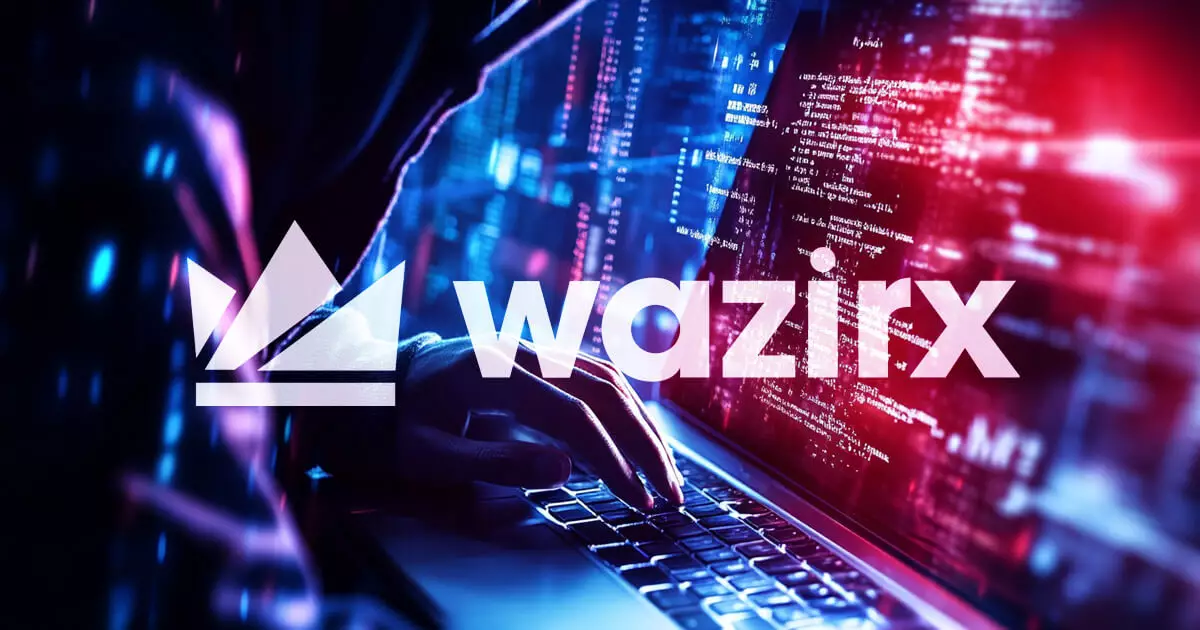The cryptocurrency landscape has been marred by a significant breach involving the Indian exchange WazirX, amounting to an alarming $235 million. The Delhi Police, in a commendable effort to tackle this financial debacle, have arrested a suspect named SK Masud Alam from West Bengal. Reports indicate that Alam orchestrated a scheme using a fraudulent account under the pseudonym “Souvik Mondal,” subsequently selling this account to an individual referred to as M. Hasan. This transaction allegedly led to the enormous exploit of WazirX’s systems.
As part of the ongoing investigation, the authorities have seized three laptops belonging to WazirX’s designated signatories. These devices are under scrutiny to ascertain any potential mishandling of multisig wallets and to investigate how breaches might have been facilitated. Although WazirX has reportedly cooperated with law enforcement by sharing extensive Know Your Customer (KYC) records and transaction logs, a report from the Indian Cyber Crime Coordination Centre (IFSO) deemed there was no evidence of unauthorized access within WazirX’s infrastructure. This suggests that the criminals may have exploited the system rather than infiltrated it directly—a critical distinction in cybersecurity.
One of the more complex facets of this investigation is the involvement of Liminal, the digital asset custody provider previously tasked with securing WazirX’s crypto wallets. Law enforcement has encountered substantial challenges with Liminal, specifically their alleged non-compliance in providing crucial information that could shed light on the breach. The police have claimed that repeated requests for information from Liminal went unfulfilled, significantly complicating the process of tracking and understanding the breach’s full extent.
This lack of cooperation raises questions about the reliability and accountability of custodial services, especially in high-stakes environments such as cryptocurrency exchanges. Both WazirX and Liminal have engaged in a public war of words, capable of portraying each party in a negative light. WazirX has criticized Liminal for inadequate security protocols, while Liminal has pointed fingers at WazirX, blaming their management practices for the lapse. Such counter-allegations not only complicate the investigation but also undermine public trust in both entities involved.
In the wake of this upheaval, WazirX has laid out an ambitious recovery plan to address the fallout from the breach and aim for redemption before creditors. The exchange is embarking on multiple strategies to rekindle its trading volumes, which is crucial for restoring its financial health. By reopening its platform, WazirX hopes to generate revenue that can be shared with affected creditors, thereby establishing a clear path towards recovery.
Moreover, WazirX is exploring diversification in its service offerings, with plans for launching a decentralized exchange (DEX), staking options, an over-the-counter (OTC) trading desk, and futures trading capabilities. These initiatives demonstrate the exchange’s commitment to expanding its market presence and resuming growth. Engaging users through innovative services might not just bring back trading activity but also attract new clientele parallel to restoring the liquidity that creditors are aching for.
Additionally, WazirX is taking proactive measures to recover lost and illiquid assets through legal avenues. The company’s endeavors to reclaim these assets highlight the importance of safeguarding creditor interests and ensuring accountability within financial systems. According to WazirX, this recovery process will involve diligent tracking of assets and measures to prevent unauthorized withdrawals, signaling a robust approach to asset management moving forward.
In another strategic maneuver, WazirX is also considering forming “White Knight” partnerships. The concept hinges on attracting potential investors willing to inject rescue financing into the beleaguered exchange. By securing new capital, WazirX aims to stabilize its operations and bolster efforts to compensate creditors, ensuring that stakeholders can see a pathway to reclaiming losses.
The WazirX breach serves as a cautionary tale for cryptocurrency exchanges and custodians alike, highlighting vulnerabilities in trust and security while navigating new financial landscapes. The ongoing investigations, recovery strategies, and efforts to enhance operational transparency will be pivotal in shaping the future of WazirX and the broader cryptocurrency ecosystem in India. As this saga unfolds, the industry must learn and adapt from such events to build more resilient financial systems for all stakeholders.


Leave a Reply